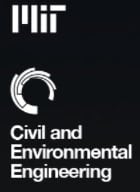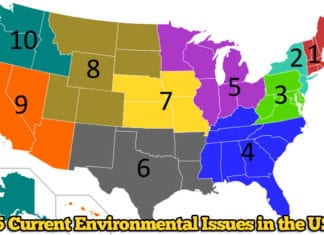
Best Colleges For Environmental Engineering: An environmental engineer is a specialist that develops technologies and solutions aimed at mitigating damage to the environment by the industry.
These specialists are currently significantly in demand due to the sustainability trend in various areas, from urban planning to tourism and productions of various items.
In this page, we have explored the best universities/colleges for environmental engineering in the US, what are the prerequisites, what to consider and how we picked the best schools.
Table of Contents
- Branches of Environmental Engineering
- What to consider when selecting a college?
- How did we pick the best colleges?
- Best Colleges For Environmental Engineering
- 1. Massachusetts Institute of Technology (MIT), Cambridge, MA
- 2. Clarkson University, Potsdam, NY
- 3. Columbia University, New York, NY
- 4. Georgia Institute of Technology, Atlanta, GA
- 5. Rensselaer Polytechnic Institute (RPI), Troy, NY
- 6. Michigan Technological University, Houghton, MI
- 7. University of Notre Dame, Portage Township, IN
- 8. Tufts University, Sommerville, MA
- 9. University of Colorado-Boulder, Boulder, CO
- 10. University of Florida, Gainesville, FL
- 11. Stanford University, Stanford, CA (SPECIAL Mention)
Branches of Environmental Engineering

There are several specific areas of environmental engineering.
- Wastewater management
- Solid waste management
- Coastal engineering
- Geophysical engineering
- Ocean engineering
- Ecosystem engineering
- Sustainable Energy
There are many instances when a company would need an environmental engineer. These specialists can assist in designing filter systems that would prevent air pollution, prevent water contamination with waste products, or can even design artificial ecosystems. Environmental engineers possess considerable expertise across subjects, from engineering and math to chemistry, ecology, and biology.
Suggested Reading:
Top 15 Current Environmental Issues in the US
![]()
What to consider when selecting a college?
When choosing a school to study for a degree in environmental engineering, one should be aware that it is as hard as any engineering major.
- Being comfortable with multiple classes in math and physics is expected. Moreover, environmental engineers need to have a thorough knowledge of math and several biological sciences.
- So, it is necessary to find a school that has strong courses in these subjects. Also, it is useful to remember that, like with any engineering major, it is imperative to have hands-on experience in design.
- A school has to be able to connect with potential employers so that useful internships can be available.
- Moreover, the program has to be ABET accredited; without the accreditation, the graduate would have significant difficulties with finding employment.
Suggested Reading:
Top 10 Discoveries in Ecology 2019
![]()
How did we pick the best colleges?
In our ranking of the best schools for environmental engineering, we have chosen schools with high international rankings, good career services available, as well as excellent reviews from current students and graduates.
We have combined info on schools with high ranking and prestige, such as Ivy League schools, and lesser-known technical and research schools that provide quality and accessible education.
Suggested Reading:
Top 15 Famous Marine Biologists
![]()
Best Colleges For Environmental Engineering
Here are some of the best colleges for environmental engineering in the USA:
1. Massachusetts Institute of Technology (MIT), Cambridge, MA

MIT is known to be one of the most difficult schools in the USA, especially for science and engineering majors. Still, if one succeeds there, they may be assured of having a first-grade education, and they would be sought out by potential employers. The department of Civil and Environmental Engineering at MIT offers the following ABET-accredited degrees:
- Bachelor of Science in Civil and Environmental Engineering (with Environmental Science Engineering track).
- Minor in Civil and Environmental Systems.
- Minor in Environmental Engineering Science.
- Master of Engineering in Civil and Environmental Engineering (with Environmental Science Engineering track).
- A dual Masters degree in Engineering and Management.
- Master of Science in CEE.
- Ph.D. in CEE
Why study Environmental Engineering at MIT:
- The coursework offered is environment-oriented, and there is a strong focus on water management and Hydrology.
- MIT has a joint program with Woodshole Oceanographic Institution that allows getting a joint degree in Applied Ocean Science and Engineering.
- The students can make their own customizable study tracks.
- Students can get fieldwork and laboratory experience during studies.
- The students can be matched with internships through the Academic Program Office.
![]()
2. Clarkson University, Potsdam, NY

Clarkson University is a small private school with a relatively small student population and campus. This School is known for its technical programs, especially engineering. Clarkson University offers the following Environmental Engineering programs:
- Bachelor of Science in Environmental Engineering.
- Environmental Engineering Minor
- Environmental Health Science Minor.
- Environmental Policy Minor
- Sustainable Energy Systems Minor.
- Sustainable Solutions for the Developing World Minor.
- Master of Science in Environmental Science and Engineering.
- Ph.D. in Environmental Science and Engineering.
Why study Environmental Engineering at Clarkson:
- This School is known for assistance with internships and professional experience.
- The curriculum is designed so the students would have both core knowledge and experience in design.
- The employment rate for Clarkson graduates is very high.
- The School is small, so the professor/student ratio is favorable.
- The students praise the family-like atmosphere at the campus.
![]()
3. Columbia University, New York, NY

Columbia University is one of the best private colleges in the US and is a part of the Ivy League. It has a variety of outstanding programs. Its Environmental Engineering degrees are offered through the Department of Earth and Environmental Engineering. There are the following ABET-accredited degrees offered:
- B.S. in Earth and Environmental Engineering.
- Combined B.A./B.S. in Earth and Environmental Engineering.
- Minor in Earth and Environmental Engineering.
- M.S in Earth Resources Engineering.
- M.S./Ph.D.track
- Eng. S.D. in Earth and Environmental Engineering.
- Ph.D. in Earth and Environmental Engineering.
Why study Environmental Engineering at Columbia University:
- The degree teaches both waste management and sustainable resources use.
- The program also offers a rare concentration in environmental health engineering.
- The School of engineering has excellent facilities to support entrepreneurship and innovation in students.
- The school assists with internships and career search.
- The School offers students various benefits while living in New York.
![]()
4. Georgia Institute of Technology, Atlanta, GA

Georgia Institute of Technology (GIT) has an excellent reputation as a technical school. It is located in a large city, which has its advantages. The School of Civil and Environmental Engineering offers the following degrees:
- B.S. in Environmental Engineering.
- BS/MS in Environmental Engineering.
- MS/Ph.D. in Environmental Engineering.
Why study Environmental Engineering at Georgia Tech:
- The curriculum is designed in a way to provide the students with a meaningful degree.
- The School of Engineering offers opportunities for studies abroad, research, and co-ops.
- The School has various scholarship and funding options.
- The School participates in the Regents’ Engineering Transfer program, which allows students to initially start their education at colleges closer to home.
![]()
5. Rensselaer Polytechnic Institute (RPI), Troy, NY

Rensselaer Polytechnic Institute or RPI is one of the most respected and rigorous technical schools in the US, and the RPI diploma is highly valued. Its department of Civil and Environmental Engineering offers the following degrees:
- B.S. in Environmental Engineering.
- M.Eng. In Environmental Engineering.
- M.S.in Environmental Engineering.
- Ph.D. in Environmental Engineering.
Why study Environmental Engineering at RPI?
- RPI is known as a “hands-on” school, so the students would gain experience in problem-solving and design.
- RPI is doing research in the fields of pollution analysis and prevention, waste management, and bioremediation.
- RPI has strong research ties with various respected international schools.
![]()
6. Michigan Technological University, Houghton, MI

Michigan Technological University is a middle-sized public school that is located in a beautiful rural setting. It is relatively high ranked and offers competitive engineering degrees. The Department of Civil and environmental engineering at Michigan Tech offers the following ABET-accredited degrees in environmental engineering:
- B.S. in Environmental Engineering.
- Minor in Humanitarian Engineering.
- Minor in Municipal Engineering.
- Civil and Environmental Engineering accelerated M. S.
- M.S.in Environmental Engineering.
- Ph.D. in Environmental Engineering.
- M.S. in Environmental Engineering Science.
Certificates:
- Graduate certificate in sustainability.
- Graduate certificate in sustainable water resources systems.
Why study Environmental Engineering at Michigan Tech?
- The degrees offered by the School give students necessary knowledge about waste management, air, and water quality management, and sustainable approaches.
- The School is affiliated with a modern Great Lakes Research center with top equipment.
- The School has excellent career services.
- Michigan Technical University has multiple clubs for students wanting engaging extracurricular activities.
- There are coaches available to support students in specific courses.
![]()
7. University of Notre Dame, Portage Township, IN

The University of Notre Dame, located in Indiana, is a private Catholic university with a high national ranking. It is a competitive university with a low admission rate. Notre Dame’s Department of Civil and Environmental Engineering and Earth Sciences offers the following ABET-accredited degrees in environmental engineering:
- B.S. in Environmental Engineering.
- Minor in Resiliency and Sustainability of Engineering Systems.
- Minor in Energy Studies.
- Minor in Environmental Earth Sciences.
- Master of Science in Environmental Engineering.
- Ph.D. in Environmental Engineering.
- Master of Engineering in Environmental Engineering.
Why study Environmental Engineering at University of Notre Dame?
- This School is relatively small, so it has a comfortable professor/student ratio.
- The graduates commend professors involvement and dedication.
- The students would be provided professional instruction and hands-on engineering experience.
- The curriculum combines courses on fundamental sciences, engineering, Earth Sciences, and sustainability.
- The university organizes various extracurricular events, and some of them are out of the scope of Catholicism.
![]()
8. Tufts University, Sommerville, MA

Tufts University is a famous, competitive private school. It is known both for its Liberal Studies curriculum and the Sciences. Tufts School of Engineering offers the following ABET-accredited Environmental Engineering degrees:
- B.S. in Environmental Engineering.
- M.S.in Civil and Environmental Engineering.
- M.S.in Bioengineering/Environmental biotechnology.
- M.S. Dual degree Civil and Environmental Engineering/Innovation and management (Tufts Gordon Institute).
- M. S.Dual Degree Civil and Environmental Engineering/Urban Policy and Planning.
- Ph.D. in Environmental and Water Resources Engineering.
- Certificate in Civil and Environmental Engineering.
- Certificate in Environmental Management.
Why study Environmental Engineering at Tufts University?
- The School has a good professor/student ration and relatively new facilities.
- Tufts University graduates enter highly ranked graduate schools and have a high hiring rate.
- Tufts University is an excellent place to network with people outside of the technical sphere, which is useful both educationally and professionally.
![]()
9. University of Colorado-Boulder, Boulder, CO

The University of Colorado-Boulder is a well-known public research university with an excellent engineering school. The college of Engineering and Applied Sciences offers the following degrees in Environmental Engineering:
- B.S. in Environmental engineering.
- M.S.in Environmental Engineering.
- Professional Master of Science in Environmental Engineering.
- Ph.D. in Environmental Engineering.
Why study Environmental Engineering at University Colorado-Boulder?
- The undergraduate program in Environmental Engineering combines faculty and courses from several departments, including Aerospace Engineering.
- The School offers various additional programs for students.
- The School offers additional certificates, including a certificate in renewable and sustainable energy.
- The engineering department is one of the focal points of the School and is well-funded.
- The School has ties with local industry, which helps with internships and career planning.
![]()
10. University of Florida, Gainesville, FL

The University of Florida is a public university firmly set in the top 50 best national universities. It offers good programs in Engineering, Business, and Medicine. Herbert Wertheim College of Engineering in University of Florida offers the following degrees:
- B.S. in Environmental Engineering.
- B.S./M.S.in Environmental Engineering.
- Ph.D. in Environmental Engineering Sciences.
Why study Environmental Engineering at the University of Florida?
- A variety of courses and research opportunities, including environmental nanotechnology.
- The School can offer distance learning and online courses.
- This School is referred to as a “public Ivy” because it is competitive, has a rigorous curriculum while being significantly more affordable.
- The School has an active and varied campus and sport life.
- The students can take advantage of good referral networks and career support from the School.
![]()
11. Stanford University, Stanford, CA (SPECIAL Mention)

Stanford University is a prestigious Ivy League school. It has its own School of Engineering. Similar to most schools, a student can declare a major in Environmental Engineering after being accepted to Stanford. Unfortunately, the current program in Environmental Engineering is not ABET accredited, so the School was not included in the main list. Stanford offers the following degrees:
- Bachelor of Science in Environmental Systems Engineering.
- Minor in Environmental Systems Engineering.
- Ph.D. in Environmental Systems Engineering.
Why study Environmental Engineering at Stanford?
- The degree offered by Stanford U is flexible and offers three possible tracks:
- coastal
- freshwater
- urban
- There are introductory courses that represent each of the environmental engineering tracks that count towards the degree and can be taken before declaring a major.
- The School offers tutoring assistance, as well as technical communication tutoring.
- There is well-organized career assistance at the School.
- The School is near Silicon Valley and San Francisco.
![]()
All schools in this list would provide students with excellent engineering education in the chosen disciplines. Still, Tufts University would be the best School to attend because this School is known not only for its excellent academics-it is also for a school that has a considerable liberal arts component that would contribute to a well-rounded education for future engineers.
![]()




















